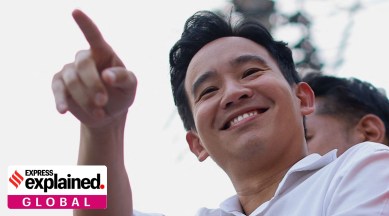Thailand to ‘Move Forward’? Stunning mandate for political reform, but uncertainty ahead
In a rebuke to Thailand’s entrenched military-royalist elite, Thai voters have overwhelmingly voted for reform-oriented parties, with youth-led Move Forward and populist Pheu Thai parties the biggest winners.

Thailand’s Move Forward and Pheu Thai parties won the most seats in Sunday’s (May 14) election, Reuters reported. This paves the way for a challenge to a royalist-military status quo after nearly a decade since the coup of 2014.
Observers have called the result a “political earthquake”, with voters overwhelmingly supporting political reform. Among key issues for voters were Thailand’s strict laws against the criticism of the monarchy – both Move Forward and Pheu Thai have advocated for reform to these laws.
However, despite the resounding mandate against the status quo, Thailand still faces uncertainty, with the military holding the power to undermine the popular mandate.
A mandate against the status quo
Early on Monday (May 15), the Move Forward Party (MFP) leader, 42-year old Pita Limjaroenrat, announced the formation of a planned six-party coalition government, comprising a total of 309 MPs with Pita himself as the prime minister, Bangkok Post reported.
The parties in the proposed coalition include: MFP (151 seats), the Pheu Thai Party (141 seats), Thai Sang Thai (6 seats), Prachachart (9 seats), Seri Ruam Thai, and Fair Party (1 seat each). Negotiators from each party will now meet to discuss policy positions and sign a Memorandum of Understanding (MoU) regarding the same.
On the other hand, the governing coalition performed dismally, securing only 15 per cent of total seats. United Thai Nation, the party of the incumbent prime minister Prayut Chan-o-cha, came fifth in the elections, winning just 36 seats.
Prayuth had come to power in 2014 on the back of a military coup which ousted the elected government led by Pheu Thai leader Yingluck Shinawatra, the country’s first female premier. Since then he has consistently doubled down on his support for Thai royalty and the military and been brutal against any form of dissent against the government.
Thai voters appetite for change
The parties in the proposed coalition have opposed the unfettered power enjoyed by Thailand’s military and royalty, and have promised to undertake reform if in power. They differ, however, in the degree of reform proposed – while MFP has been the most radical critic of the monarchy, Pheu Thai has treaded more carefully.
Thailand has some of the world’s strictest lese-majeste laws, which criminalise any criticism of the Thai monarchy. The vaguely-worded Article 112 carries a penalty of up to 15 years in jail and rights groups say it has been used to punish political activism.
In 2020, after a wave of protests broke out against the laws, Prime Minister Prayuth declared a state of emergency and suppressed dissent. However, the protests still managed to galvanise the Thai population’s mood for political reform.
Many leaders of the MFP emerged during the protests and drew from their legacy during this year’s campaign. Despite enjoying far fewer resources than its rivals, the party was able to cash in on voters’ appetite for change, promising widespread reform in all areas of Thai society and politics, from the once untouchable subject of Thai monarchy to the military, economy and the antiquated Thai bureaucracy.
Thailand’s political system can still let the military undermine this mandate
However, despite the seemingly overwhelming mandate against the status quo, it is still not clear who will ultimately come to power. This is because Thailand’s political system is skewed in favour of the military.
The lower house of the Thai Parliament has a total of 500 seats – 400 open constituency seats and 100 ‘party-list’ seats (seats won by parties based on their share of national votes). Sunday’s election was for these seats.
But, to form the government, a political party (or coalition) must win a majority of the combined 750-seat lower and upper houses of parliament. Under Thailand’s constitution, the 250-member senate is chosen entirely by the military. This means that the institution can still play a major role in deciding the government with the “winning” coalition falling well short of the 376-seat majority mark.
Asked whether Move Forward worried that senators would not vote in support of the coalition, Pita told the Bangkok Post that he was not concerned about it as “the party had the mandate of the people … And the people of Thailand will not allow that to happen.”
That being said, if it wishes to, the military can theoretically support a minority government and throw the nation into chaos.
“At this point, whether or not the Senate would be willing to respect Move Forward’s mandate is still unclear,” political analyst Ken Mathis Lohatepanont wrote in the Thai Enquirer. “Despite Move Forward’s triumph in the polls, Thailand is likely in for an extended period of uncertainty,” Lohatepanont wrote.
Democracy, military rule and the monarchy in Thailand
Though civilian rule was formally established in Thailand in 1992, the Thai military and monarchy remain pre-eminent institutions and have repeatedly hindered political reform.
Notably, Thailand has no tradition of civilian control of the military and the monarchy, which has enjoyed an exalted status among Thai citizens, operates without censure. Both the military and the monarchy have historically been tied together, supporting each other’s interests.
Most recently, Thailand saw a bloodless coup in 2014. In 2017, a new constitution was ratified under military supervision, which allowed the military to appoint all 250-members of the Thai senate.